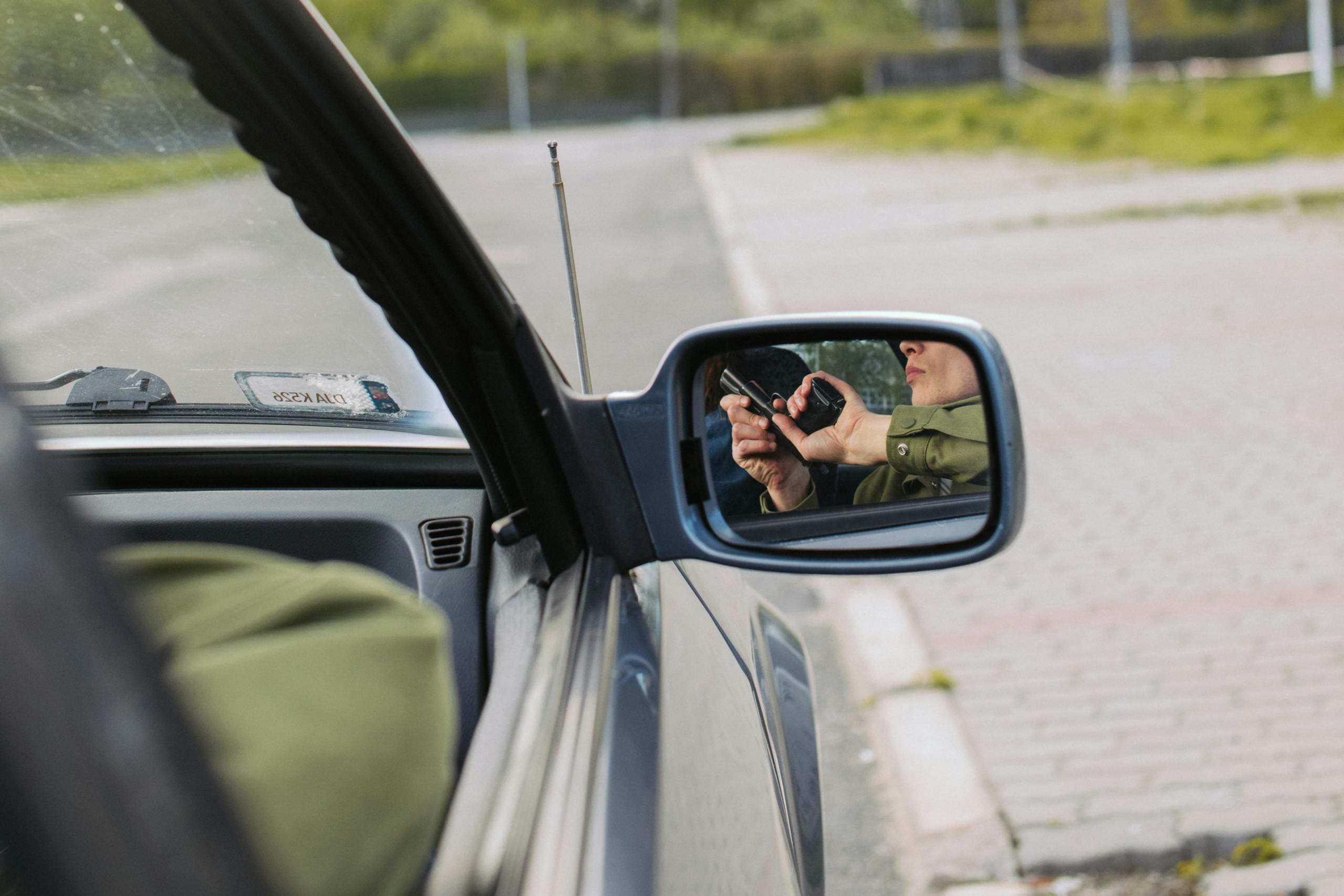Can Police Search Your Car Without a Warrant? A Guide to Your Rights on the Road (2024)
Discover the truth about warrantless car searches. Learn your rights, police procedures, and how to protect yourself during traffic stops.
Buckle Up: The Wild Ride of Warrantless Car Searches
Picture this: You’re cruising down the highway, wind in your hair, when suddenly red and blue lights flash in your rearview mirror.
As the officer approaches, your heart races. Can they rummage through your ride without a warrant? Buckle up, buttercup, because we’re about to take a thrilling journey through the twists and turns of your Fourth Amendment rights!
Pop the Hood: Understanding Your Rights During a Traffic Stop
Before we rev our engines, let’s break down the basics:
| Scenario | Can Police Search? | Notes |
| With your consent | Yes | You can refuse! |
| Probable cause | Yes | Officer needs reasonable belief of criminal activity |
| Plain view doctrine | Yes, but limited | Only items visible from outside the car |
| Search incident to arrest | Yes, but limited | Only the area within the arrestee’s reach |
| Exigent circumstances | Yes | Immediate safety concerns or evidence destruction |
| With a warrant | Yes | But they rarely get warrants for routine traffic stops |
The Fast and the Curious: When Cops Can Search Without Consent
Hold onto your steering wheel, because here’s where things get interesting. Even without your permission, police can still search your vehicle under certain circumstances:
- The Sniff Test: If a K-9 unit alerts to the presence of drugs, that’s probable cause for a search. However, the police can’t unreasonably prolong a traffic stop just to wait for a drug-sniffing dog to arrive.
- Open Container, Open Season: Visible alcohol or drug paraphernalia can justify a more thorough search. This falls under the “plain view doctrine” – if an officer spots contraband in plain sight, it’s fair game.
- The Arresting Development: If you’re arrested, police can search the area within your immediate reach, known as a “search incident to arrest.” This is primarily for officer safety and to prevent the destruction of evidence.
- Safety First: Officers can pat you down if they have reasonable suspicion that you’re armed and dangerous. This is called a “Terry frisk,” named after the landmark case Terry v. Ohio.
- Hot Pursuit: If the police are chasing a suspect who enters a vehicle, they can search that vehicle without a warrant.
- Exigent Circumstances: In emergencies where public safety is at immediate risk or evidence might be destroyed, police can conduct a warrantless search.
- Automobile Exception: Due to the mobile nature of vehicles, if police have probable cause to believe there’s evidence of a crime in the car, they can search without a warrant.
- Inventory Search: If your car is impounded, police can conduct an inventory search to document the contents. This is administrative but can lead to the discovery of evidence.
- Border Crossings: At international borders or their functional equivalent (like international airports), authorities have much broader search powers.
- Probation/Parole: If you’re on probation or parole, your agreement may include consent to searches, including of your vehicle.
Remember, “probable cause” is the key phrase here. It’s a higher standard than “reasonable suspicion” (which is enough for a traffic stop) but lower than what’s needed for a warrant.
“Knowing these exceptions is like having a legal GPS. It helps you navigate the complex terrain of your Fourth Amendment rights.” – Lexi Law, Constitutional Attorney
What Happens If You Do Not Consent to a Car Search?
So, you’ve decided to stand your ground and refuse a search. What now? Let’s break down the process and potential outcomes:
- Assert Your Rights Clearly:
- Use clear language: “I do not consent to any searches.”
- Be polite but firm. Remember, asserting your rights is not an admission of guilt.
- Officer’s Response:
- The officer might try to persuade you, saying things like “If you have nothing to hide…”
- Stay calm and reaffirm your non-consent.
- Potential Scenarios: a) Officer Backs Off:
- If there’s no probable cause, the officer should respect your decision.
- You may be free to go or issue a citation for the original reason for the stop.
- b) Officer Searches Anyway:
- If the officer has probable cause, they can search despite your refusal.
- Verbally restate your non-consent, but do not physically resist.
- c) Officer Detains You:
- They might call for a K-9 unit or seek a warrant.
- You’re not free to leave, but you’re not under arrest.
- Duration of Stop:
- Police can’t unreasonably prolong the stop to find a reason to search.
- The Supreme Court ruled in Rodriguez v. United States that extending a stop requires reasonable suspicion.
- Documentation:
- If possible, record the encounter (check your state laws on recording police).
- Note the officer’s name, badge number, and patrol car number.
- If others are present, get their contact information as potential witnesses.
- Aftermath:
- If no search occurs, you’ll likely be free to go or cited for the original violation.
- If a search does occur despite your refusal, and nothing is found, you’ll likely be released.
- If evidence is found during a potentially illegal search, it may be suppressed in court.
- Legal Recourse:
- If you believe your rights were violated, consult an attorney.
- You may have grounds for a civil rights lawsuit or a complaint against the department.
“Refusing a search is like playing legal chess. It’s a strategic move that can protect your rights, but be prepared for the officer’s next move.” – Chess T. Lawyer, Civil Rights Advocate
Remember, while refusing a search can protect your rights, it’s crucial to stay calm and cooperative throughout the process. Hostile behavior can escalate the situation and give officers other reasons to detain or arrest you.
Knowing your rights is just the first step. Exercising them wisely and safely is the key to navigating these tricky situations. When in doubt, the magic words are: “I do not consent to any searches, and I wish to speak with an attorney.”
True or False: Test Your Traffic Stop IQ!
- Police need a warrant to search your trunk. (False! Probable cause applies to the whole vehicle.)
- You must answer all questions during a traffic stop. (False! You have the right to remain silent.)
- Refusing a search automatically makes you look guilty. (False! It’s your constitutional right.)
- Police can always search your car if they smell marijuana. (True in some states, false in others. Laws are changing!)
- Consenting to a search waives your right to challenge it later. (True! Think carefully before giving consent.)
The Ripple Effect: Consequences of Illegal Searches
When the law takes a wrong turn, everyone feels the impact:
For Citizens:
- Evidence obtained illegally can be suppressed in court (the “fruit of the poisonous tree” doctrine)
- Potential civil rights lawsuits against police departments
- Erosion of trust in law enforcement
For Police:
- Disciplinary action, including suspension or termination
- Lawsuits and financial liability for the department
- Damaged community relations and public trust
Shocking Stats: The Numbers Behind the Badge
- 🚗 About 20 million traffic stops occur annually in the U.S.
- 🔍 Approximately 2% of traffic stops result in a vehicle search
- 👮 In 2020, 61% of searched drivers were racial minorities
- ⚖️ Only about 12% of vehicle searches result in contraband being found
- 💼 89% of drivers consent to searches when asked, often unaware of their rights
Your Legal GPS: Navigating a Traffic Stop Like a Pro
- Stay calm and keep your hands visible
- Politely ask if you’re free to go or being detained
- If not free to go, state “I invoke my right to remain silent”
- If asked for consent to search, firmly state “I do not consent to searches”
- Don’t physically resist, but do verbally object to any illegal search
“The best defense against an illegal search is knowing your rights and asserting them calmly.” – Miranda Wright, Civil Rights Attorney
When the Rubber Meets the Road: Real-Life Search Scenarios
The Case of the Curious Cop
Officer Nosey pulls over Sally Speedster for a broken taillight. He asks to “take a quick look inside” her car. Sally, knowing her rights, politely declines. Officer Nosey, with no probable cause, lets her go with a warning. Rights asserted, freedom preserved!
The Aromatic Arrest
Officer Keeneye stops Tom Toker for swerving. Approaching the car, he smells marijuana. This gives him probable cause to search the entire vehicle, no warrant needed. Tom’s stash is found, and he’s arrested. Lesson learned: Keep your car smelling fresh!
The Backseat Blunder
Officer Eagle-Eye pulls over Careless Carl for speeding. Glancing in the backseat, she spots a bag of white powder. Plain view doctrine in action! Carl’s joyride turns into a trip to the station.
Your Get-Out-of-Jail-Free Card (Sort Of): Legal Help When You Need It Most
If you’ve found yourself on the wrong side of a car search, don’t try to outrun the law solo. That’s where good legal advice comes in.
Our network of seasoned criminal defense attorneys specializes in Fourth Amendment cases and can help you navigate the legal fast lane. Don’t let an illegal search derail your life – click here to connect with a legal pro who can help put the brakes on overzealous law enforcement!
The Final Lap: Know Your Rights, Stay on Track
Understanding your rights during a traffic stop is like having a legal seatbelt – it might just save your bacon. While police do have some leeway to search vehicles without a warrant, your constitutional rights are the ultimate speed bump against unreasonable searches.
Remember, knowledge is power, and asserting your rights calmly and respectfully is key. Stay informed, stay cool, and if in doubt, lawyer up!
Now, armed with this info, you’re ready to hit the road with confidence. Just remember to use your turn signals – we don’t need to give Officer Friendly any excuses, do we?







